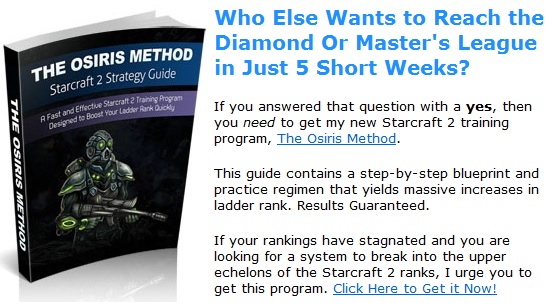Starcraft 2 Protoss vs Protoss StrategiesHome --> Protoss Guide --> Protoss Strategy --> PvP Strategy (you are here)
This loss of early units can give the opponent a large enough army lead to build a proxy Pylon inside your base. Once that Pylon goes up, the game is over. This is an all too familiar scenario for even the top Protoss players. In this strategy section for the Protoss vs Protoss mirror match-up, you will discover the best strategies, micro tricks, and army compositions you can use to best your Protoss brethren in Starcraft 2. Learning to Micro The little micro battles of early Protoss vs Protoss matches are extremely important. Not only can winning these micro battles result in outright victories with Gateway-based rushes, but these small victories can be used by conservative players to gain a big economic lead heading into the mid game. If one player is able to snag a few extra unit kills, these resources can be used by the victorious player to build a Nexus. If a player is able to net a few Zealot and Stalker kills early in the game without losing any of their own units, the victorious player will have their second expansion going without sacrificing army size. If the opponent tries to expand, not only will they have a smaller army from losing units early in the game, but the resources invested in the expansion make it impossible to counter an enemy attack. Learning to micro properly is easier said than done. More accurately, it is easier watched and copied than read in text format. What I recommend doing is downloading the replay packs from major tournaments and picking out all the Protoss vs Protoss matches. Each day before you play Starcraft 2, watch 1 Protoss vs Protoss pro-level replay. You will see the tricks that the top Protoss players use to out-micro their weaker opponents, and simply watching this action and then trying to replicate it in your own game is enough to significantly improve your micro. One way players try to opt out of these early micro battles is by going for fast Dark Templar, which is discussed below. The Dark Templar Rush Perhaps the most recognizable and most commonly performed Protoss vs Protoss strategy is the Dark Templar rush. Prior to Heart of the Swarm, this distinction may have belonged to the 4-Gate, but now there are a wide variant of early Gateway rushes that are commonly used, making the Dark Templar rush arguably the most common Protoss vs Protoss strategy. The strength of the build is obvious: if you have Dark Templar out before the opponent has an Observer, you will be able to attack the opponent without reproach. If the opponent has no Observer but has Photon Cannons, you can still expand without reproach. Given the Dark Templar's high DPS, any enemy units or structures in its path will be quickly burned down. What is not self evident are the two other perks of opening with fast Dark Templar. The first perk is that you get to opt out of the micro battles and early Gateway rushes of Protoss vs Protoss. Getting out fast Dark Templar means that the Protoss player will have to finish you off before you get your Dark Shrine up. If they cannot, they will have to pull back and wait for detection before they can attack again. The second perk is that even if your Dark Templar rush fails, you can just convert those Dark Templar into Archons, which are extremely good at the early phases of the game. Not only are Archons great versus Zealots, but they also crush Force Fields, making it easy to push up the opponent's ramp if you want to continue your attack. Taking Your Expansion One of the most difficult aspects of Protoss vs Protoss strategy is the timing of the natural expansion. If you take it too early and the opponent reacts with offense, you can lose very quickly to a Warp Gate powered 1-base rush. The 400 minerals you invest in a Nexus will be 4 less Zealots when the initial attack comes. It is also hard to defend a new Nexus because an aggressive Protoss player can Force Field the ramp to the main base, preventing units on the high ground from defending the natural expansion and preventing Probes from fleeing the natural expansion to safety in the event of an attack. Defending the natural expansion is much easier once the Nexus itself has been fully constructed. This is because the Mothership Core's Photon Overcharge ability is very effective at defending early Gateway attacks. Of course, in order to use this ability, you need the Nexus to be fully constructed and have a Mothership Core with 100 energy. The best way to secure this Nexus is to expand off the back of an attack. If you make an attack with early Gateway units, you can throw down the Nexus at your natural expansion while you joust with your opponent. Try to lose as few units as possible (if any at all) while you distract your opponent with the threat of an attack. During this time, your Nexus will be under construction. Once the Nexus finishes, fall back and use the Mothership Core to help defend while you macro up. The Best Tech Switches There are three important tech switches you can make in Protoss vs Protoss to surprise your enemy:
Dumping Your Minerals The best Protoss vs Protoss units cost a lot of gas. As a result, you will end up with a lot of excess minerals in the mid to late game. Do not let these minerals go to waste. If you lose a game with 3000-4000 minerals in the bank but zero gas, you made a big mistake. Here are six great ways to spend your excess minerals:
Conclusion The Protoss vs Protoss match-up is a volatile one, but you do not have to lose 50% of these matches. Follow the strategies presented in this guide and regularly watch pro-level PvP replays for micro tips and you will start winning your mirror matches in no time! |
Don't be shy - share this page on G+ and Twitter!
Sign up for my Free Starcraft 2 Mini-Course where I reveal my best strategies not seen anywhere on this site!
Starcraft 2 Strategy Guide Privacy Policy Contact Us Disclaimer
©2013 www.osirissc2guide.com

